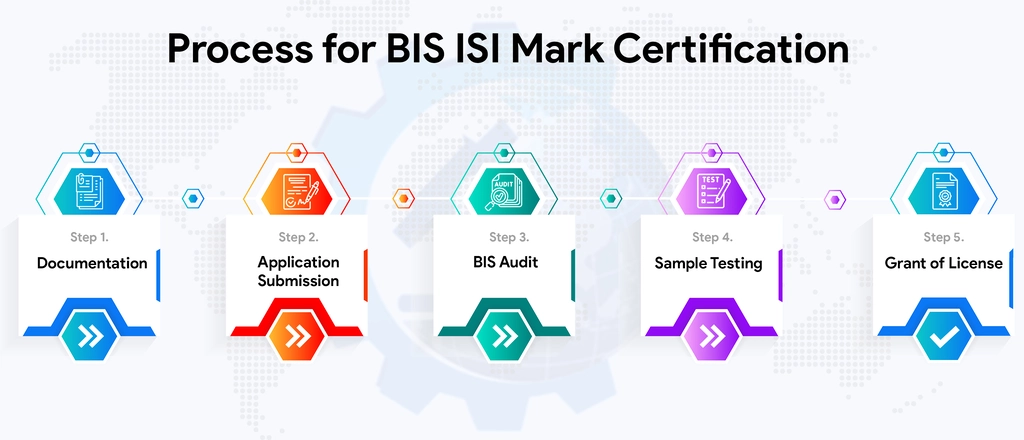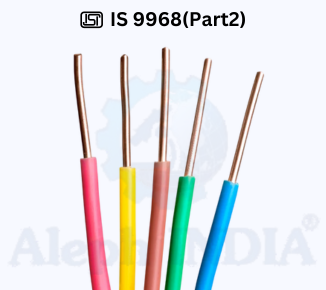BIS CERTIFICATION FOR ELASTOMER-INSULATED CABLES IS 9968(Part2)
Published Date: January 30, 2025 4 min Read
BIS certification is essential for Elastomer-Insulated Cables for working voltages from 3.3 kV up to and including 3 as per IS 9968 (Part 2):2002. This standard ensures that these cables meet stringent safety, durability, and performance requirements, which are crucial for applications in power transmission and industrial installations. Elastomer-insulated cables are known for their flexibility, high thermal resistance, and superior insulation properties, making them ideal for environments requiring robust and reliable electrical connections. Compliance with IS 9968 (Part 2) demonstrates a manufacturer’s commitment to delivering high-quality cables that meet national safety and performance standards.
IS 9968 (Part 2): Elastomer-Insulated Cables for Working Voltages from 3.3 kV
The IS 9968 (Part 2) standard specifies the material composition, design specifications, and performance requirements for elastomer-insulated cables. It covers aspects such as conductor type, insulation material, and mechanical strength to ensure reliable electrical performance. The standard also outlines requirements for resistance to thermal stress, environmental degradation, and mechanical impact, making these cables suitable for demanding applications in industrial, commercial, and power distribution sectors. Additionally, it includes testing procedures to verify electrical conductivity, insulation integrity, and long-term durability under varying operational conditions.
Benefits of BIS Certification for Elastomer-Insulated Cables
Mandatory BIS certification under IS 9968 (Part 2) ensures that elastomer-insulated cables adhere to the highest national safety and quality benchmarks. For end-users, it guarantees enhanced electrical efficiency, reduced risk of short circuits and failures, and increased longevity in high-voltage applications. For manufacturers, BIS certification enhances market credibility, ensures compliance with regulatory requirements, and provides a competitive edge in the electrical cable industry.
Key highlights
| Product Name | Elastomer-insulated Cables, Part 2: For Working Voltages from 3.3 kV up to and Including 3 |
| Applicable Indian Standard | IS 9968(Part2):2002 |
| Applicable Certification Scheme | Product Certification Scheme (ISI Mark Scheme) Scheme 1 - Schedule 2 |
| Compliance Requirement | Mandatory |
| Quality Control Order | Click here | Scope as per Standard | This standard covers the requirements for polyethylene/cross-linked polyethylene insulated cables with aluminum conductors, which are twisted over a central bare or insulated aluminum alloy messenger wire. These cables are designed for use as overhead distribution feeders. |

Note
For Detailed Information about the Procedure for BIS ISI Certification, Visit :
Timeline for BIS Certification
The estimated timeline for obtaining BIS certification under IS 9968 (Part 2) is as follows:
- For Indian Manufacturers (Standard Timeframe – 30 days)
- For Foreign Manufacturers (Standard Timeframe – 180 days)
Conclusion
BIS certification under IS 9968 (Part 2):2002 is essential for ensuring the safety, reliability, and durability of elastomer-insulated cables used in high-voltage applications. By complying with this standard, manufacturers can offer products that meet national regulatory requirements while ensuring optimal electrical performance.
Partner with Aleph INDIA for expert assistance in obtaining BIS certification and ensuring compliance with national standards for elastomer-insulated cables.
Frequently Asked Questions
International Audits & Participation
Testimonials
BIS REGISTRATION FOR ELECTRONIC & IT PRODUCT
In the era of globalization, world trade is growing rapidly and henceforth, Manufacturing and Import/Export businesses are also growing drastically...View More
BIS CERTIFICATE FOR FOREIGN MANUFACTURER
The Economy of India-the fastest developing economy on the globe with the capabilities that help it matches up with the biggest international...View More
PRODUCT CERTIFICATION SCHEME (ISI MARK) FOR DOMESTIC MANUFACTURERS
Anything a person buys from food to cars, clothes to electronics, branded to unnamed products there is always a question that wanders in one’s...View More
WIRELESS PLANNING AND COORDINATION (WPC)
WPC: Wireless means communication done from one point to another point without the wires and cables. Electromagnetic waves carry the ...View More
BUREAU OF ENERGY EFFICIENCY (BEE) CERTIFICATE
BEE CERTIFICATE: Energy is the future, and its conservation is the way of the bright future. Everyone claims the environment is important...View More
E-WASTE MANAGEMENT
E-waste is one of the world's fastest-growing trash streams. We currently manufacture almost 50 million tones of it each year...View More
View All Services
Request a call back.
Would you like to speak to one of our Senior Technical advisers over the phone? Just submit your details and we’ll be in touch shortly. You can also email us if you would prefer.






























